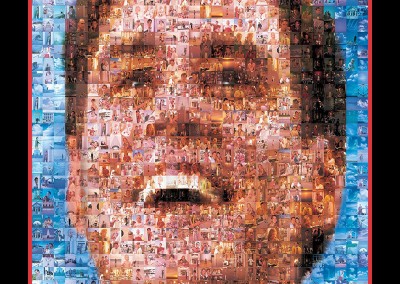
How do you know what is real?
Who are you?
How do you know who you are?
In the video below (The Truman Show: A Cleverly Disguised Tragedy), the critic says no one has ever before experienced the alternate reality imposed on Truman. That’s true about the dome setting – but sadly there have been horrific instances of people and children being kept captive for years.
In terms of lies and betrayal – that is far more common. Skeletons in cupboards have long existed when it comes to families and family connections. With the developments in technology associated with fertility and DNA tracking, more people than ever before are finding out that the reality of their very existence is perhaps, not what they always thought. Why has this been allowed? How have those involved responded? Read this fascinating article to find out more:
What about society in general? What does everyone else understand to be real/true?
October 2021: Facebook whistleblower wants Facebook to do more to combat misinformation:
What does your society care about? How do you know?
November 2021: An interesting article about how we try to observe our “real” selves via social media:
How can we find out more about the possibilities of who we are or what the world is about?
What does Truman know about himself? His world? His society? His family? His friends?
How does what WE know about OUR lives compare/contrast with what Truman knows?
The Johari window is a way to find out more of what we ‘don’t know’ about ourselves.
Settings in The Truman Show
Setting: PLACES
1. Seahaven. An idealized small-town America. Perfect picket fences, prettily painted houses, tidy gardens and yards. High school with beautiful friends and fun activities.
2. Grittier locations such as the unfinished bridge over a culvert, the raging stormy sea in a vulnerable boat, a lonely beach + personalized rain.
3. The mind-bending juxtaposition of a solid wall that curves back over and above you as a complete and seemingly inescapable barrier – but painted as the sky. The sky – usually assumed to be a concept of air and limitless freedom – a simple gaseous cloak masking the infinite possibilities of the universe. Being confronted with stairs and an exit door tacked onto this absurd reality.
This cartoon mimics the progression Truman takes through the various settings in the film as he makes his way towards self-actualization.

Setting: Time and Circumstance
The time The Truman Show is set in is “a recognizable modern-day” but with technology and infrastructure more advanced than we have currently (e.g. the weather manipulation tech).
It is also interesting to contrast what Weir thought would be possible in this future/but “now” time vs what has actually eventuated regarding technology and the emergence of social media.
The media landscape is also another important aspect of the setting for this film and it is fascinating to compare and contrast the ideas of WHO, WHAT and HOW of this media landscape compared to today.
E.g. Who controlled the media aspects in the film? Who controls the media avenues now in real life? What difference does that make to how we interpret the ideas in the film?
What media was there in the film? While reality TV was predicted, what does it say about human nature that Youtube and the constant self-display now part of today’s media landscape, was not?
How does media “control” or restrict or blind us today? How might someone “escape” their media prison today?
Manipulation. Sometimes people deny, minimize or lie about the truth to control or manipulate others.
Life in the spotlight and under the microscope.
The “Up” series has tracked a group of children throughout their lives, every 7 years since 1964. Here is a link to an article about it and some clips. See below for an interview with the director, Michael Apted.
Growing up. We all gotta do it.
How does the process Truman goes through in the film link to processes we must each go through in order to achieve self-actualization?
In what ways does Truman’s path to self-actualization align with or differ from the conventions usually seen in a teenage “coming of age” film?
Tyrants, trolls, Tik Tok and the truth – How the internet gives voice to anything.
Where does paranoia, fake news, conspiracy theories, ‘deep state’ and propaganda for the purposes of control come into it?
Article about Fake News: https://www.bbc.com/future/article/20170301-lies-propaganda-and-fake-news-a-grand-challenge-of-our-age
Sometimes misinformation is a matter of life and death.
Article about political leaning dictating the understanding of the Covid19 crisis: https://www.vox.com/science-and-health/2020/3/31/21199271/coronavirus-in-us-trump-republicans-democrats-survey-epistemic-crisis
Article about the moral questions raised by the pandemic. Is it okay to sunbathe? Links to the ethical questions raised by the film as it links to a modern-day example in real life.
Reality TV. Is it more real now?
20 Years on – How reality caught up with The Truman Show.
This film was created before Reality TV was a routine part of our lives. Before Youtube. Before Instagram and Tik Tok. Even though it is commonplace for everyone to put themselves and their lives online today, it is still an interesting question to ask about the consequences of such exposure. Who is doing it? Why?
How valuable is Reality TV to humanity? What are its costs? What are its harms? What are its possible rewards?
Post-internet comedy? Taking internet habits mainstream? Poking fun at what gets done online.
The Netflix comedy series I Think You Should Leave critiques our internet lives, behaviours and world. You may laugh/cry when you recognize some of the worryingly ridiculous things people (we) do online. The article below helps unpack this new form of satire on our new form of being (and being entertained). An excellent article to focus a critical reflection on the influence of the media in our current setting.